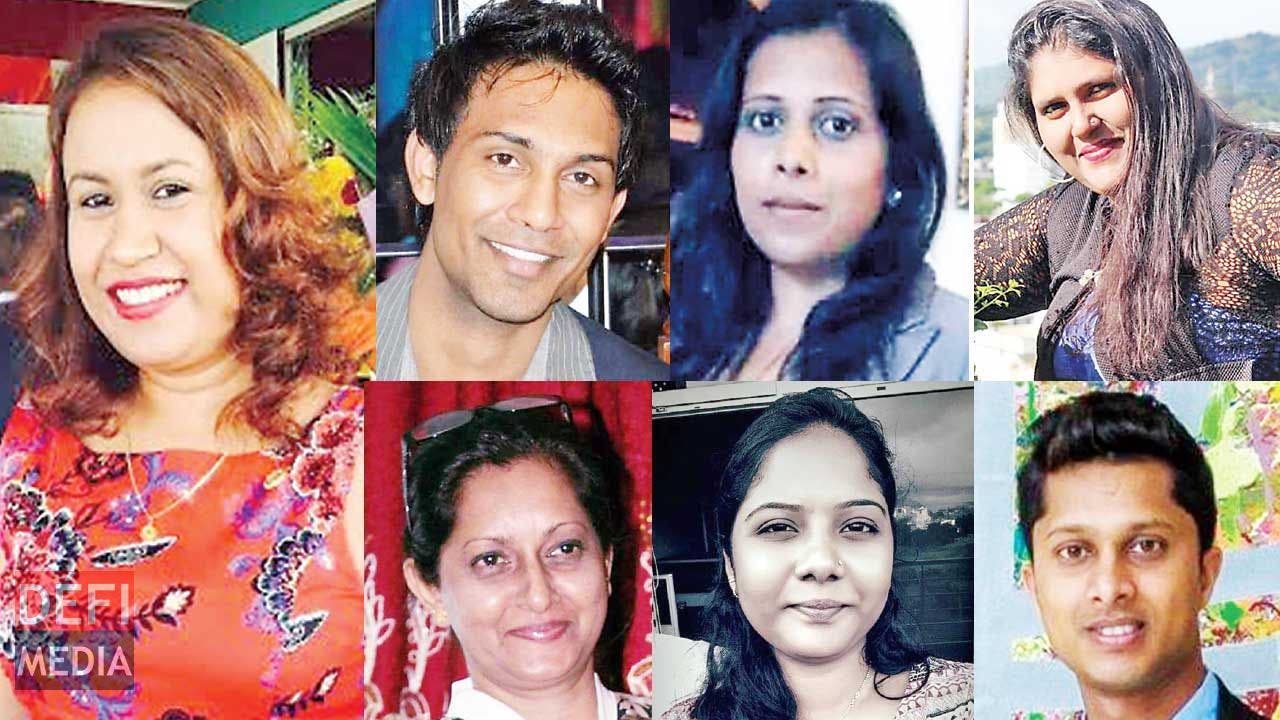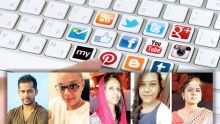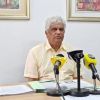
In a democratic society, freedom of speech and expression is a must. However, it has been a debate whether we are allowed to say anything we want anytime. Supporters of freedom of speech argue that an individual has the ultimate right to say anything he wants while opponents believe there should be some restrictions. Our youngsters debate.
Publicité
 Nishta Jooty: “Being free does not mean to do or say whatever we want”
Nishta Jooty: “Being free does not mean to do or say whatever we want”
Freedom of speech is one of our fundamental rights, says Nishta. “According to our Constitution, we have the freedom to express and hold opinions and to receive and impart ideas and information without interference. However, we should ensure that the reputation, rights and freedoms of other persons are protected as well as their private lives. Freedom of speech is, in fact, freedom from the government; that is, we have the right to express ourselves and have the government not punish us for it. The freedom of the press is a good example. The press should be able to run without censorship or restraint by the government.”
Nishta argues that as citizens, being free does not mean to do or say whatever we want. “It means to respect and accept what others are thinking about and to give our opinion in a respectful way. We cannot go into an office and use insulting, offensive words towards someone and expect to get away with it because of freedom of speech. Schools, universities, organisations, companies and even websites have rules and codes of conduct which should be respected by all citizens. Bullying and harassing people with words are not allowed, even if it is on the phone or online. We need to set limits to the freedom of speech so as to protect people from harm.”
For her, being able to voice out our opinions on issues comes with responsibilities. “We should choose our words carefully and ensure that nobody is hurt. We should be held accountable for anything we say or type. It is true that today people writing anonymously or under pseudonyms, on the Internet for example, are not held accountable for their words. Freedom of speech is very subjective. It depends on the country, on the culture, on the religious tolerance and on the ease which people can take it. An example is Charlie Hebdo where the attacks unfortunately led to the death of 12 men.”
 Nasreen Fakeerbaccus: “There should be some limitations”
Nasreen Fakeerbaccus: “There should be some limitations”
Freedom of speech is the right to express one’s opinions and ideas without any fear of government reprisal, censorship or form of punishments, believes Nasreen. “It is qualified as a Human Rights, under the Universal Declaration of Human Rights (UDHR) and classified in the International Human Rights Law in the International Covenant on Civil and Political Rights (ICCPR). As per the UDHR, everyone shall have the right to hold opinions without interference and everyone shall have the right to freedom of expression - this right shall include freedom to seek, receive and impart information and of all kinds of ideas, regardless of frontiers, through any type media.”
She states that freedom of speech is considered to be fundamental in a state of democracy but should have some limitations as well. “Likewise, later on, the Article 19 has been amended accordingly stating that these rights carries special duties and responsibilities and be subjected of certain restrictions in terms of respect of the rights, reputation of others, the protection of national security, public order, public health and morals. In other words, to safeguard others rights and maintain the public order and the peace of a country.”
She further explains that freedom of speech is a means by which a Government has a feedback from its people of the way it is governing and handling the matter of the country. “Consequently, this could help in improving the country in various ways, such as taking the best decision in the interest of all citizens. In other words, the concept of democracy would be applied somehow, that is government of the people, by the people and for the people. But, there should be some limitations to safeguard other parties.”
 Vikish Rama: “Freedom of speech still a debatable issue”
Vikish Rama: “Freedom of speech still a debatable issue”
Vikish Rama argues that the concept of freedom of speech has never been more debated than today. “In this era, people share their point of view, they got their own opinions. Social media have been the platform for many people to start forums and discussions where this would connect many people to voice out their concerns. On these platforms the reactions of others cannot be controlled. Freedom of speech under law holds much respect and valuable arguments which nowadays any politician or social group would be playing blind. So is freedom of speech as powerful as it should be? Freedom of speech is also about people listening to the opposing views which co-exist to bring in a constructive equilibrium. The Right not to Say whatever you like is like respecting each other, how you would have wanted to be respected. ”
 Asvin Adaya: “People have the right to speak and write openly”
Asvin Adaya: “People have the right to speak and write openly”
Asvin argues that we live in a society where democracy is based profoundly on the right for people to express how they feel. “Freedom of speech is a basic human right in all free societies and it plays a vital role in the lives of people, especially from how a country’s ministers take decisions for society. In a society, people are very sensitive when their rights are being threatened. In every country we have a different culture that shapes the society and when the people are insecure, they become emotional and will fight to protect their rights. Sometimes, such disaccord may lead to social unrest, which as a result, can discrupt the economy. Our society is as such where freedom of speech should only be allowed according to certain norms and values.” He further adds thjat “freedom of speech is an essential aspect and it concerns every citizen. It is vital as it also concerns democracy. It secures the right to speak and write openly along with the ability to criticize any injustice. In a way some argues with the fact that decisions cannot be made on the basis of how people feels. We live in a society where the economy should be positively active but not stagnant as we cannot please everyone at the same time. Thus, the policy makers (ministers) should educate the population and devise certain laws in order to fit the societal and economical context of the country.”
 Pallavi Mattapullut:“Individuals must be responsible for their abuses”
Pallavi Mattapullut:“Individuals must be responsible for their abuses”
Pallavi believes that no one shall be intimidated on account of his opinions, including his religious views, provided their manifestation does not disturb the public order established by law. “The free communication of ideas and opinions is one of the most precious of the rights of man. Every citizen may, accordingly, speak, write, and print with freedom, but shall be responsible for such abuses of this freedom as shall be defined by law. Therefore the State would have to set limits on this hypothetical freedom. A free and independent press, including online, is a pillar of vibrant societies. Yet, its future is in jeopardy. Press freedom is declining across the world, as surveillance of journalists and violations of the confidentiality of sources become more common. Reporters are often victims of government orders to shut down media websites or blogs in the name of national security or public order. Journalists and their sources are taking enormous risks.”
She highlights that we should encourage the deployment of encryption to ensure trust online and to support the safety of journalists and the confidentiality of their sources. “Everyone has a role to play to make the Internet more trusted and secure. As we celebrate World Press Freedom Day, we must remember that rebuilding trust in the news is a complex and long process and we each have a role to play. Encryption can be one of the steps towards a brighter future for a free and independent press.”
 Rohish Ramjutton:“Freedom of speech is still the bloodline”
Rohish Ramjutton:“Freedom of speech is still the bloodline”
The right to freedom of speech and expression is one of the most precious rights which Mauritian citizens possess, states Rohish. “Ideas are constantly sought, received and imparted through media and since we belong to a modern society, the standards for free speech used by individuals on social networking sites are now able to catch up with all other forms of human interaction. People can’t be incited to violence, neither slandered (in speech), neither libeled (in writing). We are not allowed, today, to do things that would make any reasonable man punch us in the face. Limitation to restrain freedom of speech in certain circumstances are exercised with the sole purpose, against an individual’s will, to prevent harm to others. Hate speeches, racist comments, insulting vocabulary and obscene materials including pornography are banished from the population and are not justified by this freedom.” He further claims that Mauritians, being very conscious of their ethnic identities, inculcate values at a tender age so as not to venture in the restricted waters of freedom of speech. Nevertheless, freedom of speech is still the bloodline to our democracy and it is a principle worth defending to one’s dying breath.
 Ashneema Seebun: “Words can hurt as well as heal”
Ashneema Seebun: “Words can hurt as well as heal”
The most precious gift for human communication is speech, says Ashneema. “The skill to converse enables us to establish links across time and space, to understand different nations and cultures, to expand our knowledge both vertically and horizontally across the globe, to endorse the arts and sciences. Speech bridges the gaps between peoples, nations and even generations so as to put an end to old enmities, to reach agreements, to promote new partnerships. Speech allows human beings to communicate their thoughts and emotions. Words allow us to express our feelings, to record our experiences, to realise our ideas, to push outwards the frontiers of intellectual exploration. Words can move hearts, words can change perceptions, and words can set nations and peoples in powerful motion. Words are an essential part of the expression of our humanness. To limit freedom of speech and expression is to cripple the basic right to realise our full potential.”
However, as highlighted by the lady, since historical times, it has been recognised that words can hurt as well as heal, that we have a responsibility to use our verbal skills in the right way. “By controlling or denying freedom of speech and expression, we take away a lot of potential. We take away thoughts and ideas before they even have the opportunity to hatch. We build a world around adversity where we cannot speak, think, or do what we really want. Freedom fighters ought to be freedom practitioners. The simple law for those who want to defend freedom of speech is that they must demonstrate their commitment by practising what they preach. When we speak out for our right to freedom of speech, we begin to exercise it. When we write about our right to freedom of expression, we begin to practise it. There can be no theoretical advocacy of these freedoms, there can only be practical, practicing advocacy.”
 Nazleen Vadivelu: “Everyone should bear his own responsibility”
Nazleen Vadivelu: “Everyone should bear his own responsibility”
Freedom of expression is fundamental in a democracy, avers Nazleen. “In Mauritius it is guaranted under the Section 12 of the Constitution. It clearly states that: except with his own consent, no person shall be hindered in the enjoyment of expression, that is to say, freedom to hold opinions and to receive and impart ideas and information without interference, and freedom from interference with his correspondence. However, freedom of expression should consist of some restrictions, so as not disrupt the peace of a country. For instance racial allegations are prohibited in a multi-racial country like Mauritius. Thus, it is important for one before giving his or her opinion on any matter to realise its consequences and take his/her responsibilities before expressing anything.”

Notre service WhatsApp. Vous êtes témoins d`un événement d`actualité ou d`une scène insolite? Envoyez-nous vos photos ou vidéos sur le 5 259 82 00 !


























![[Info Soirée] : « si bann zenn donn nou koudme nou kapav gayn konseye ki eli »](https://defimedia.info/sites/default/files/styles/square_thumbnail/public/whatsapp_image_2025-01-18_at_20.35.09.jpeg?itok=0BisjGbp)





